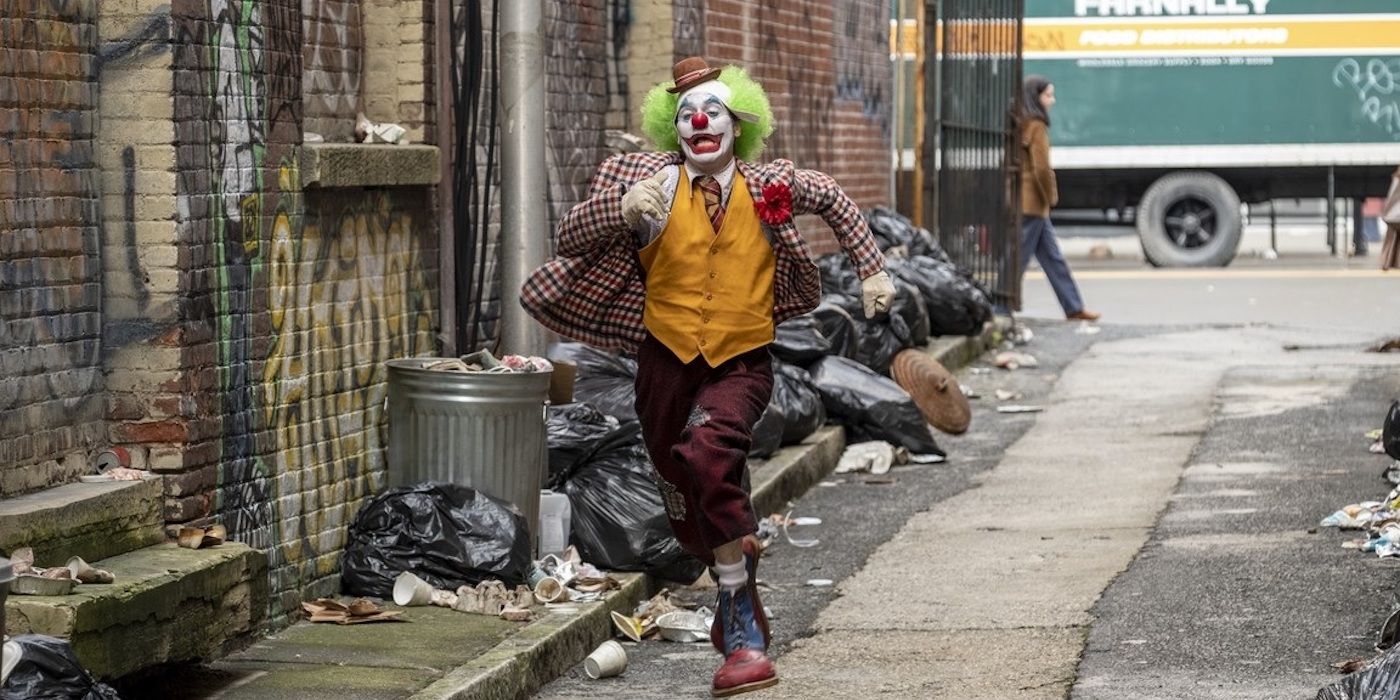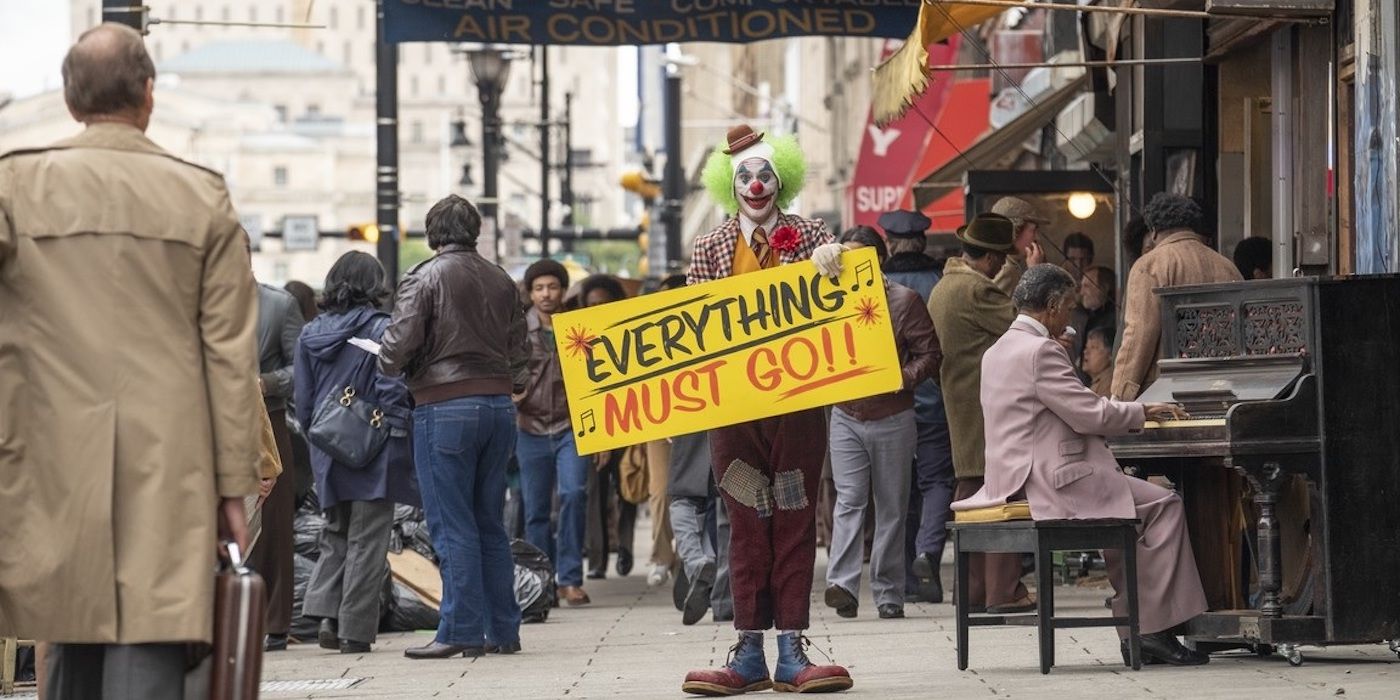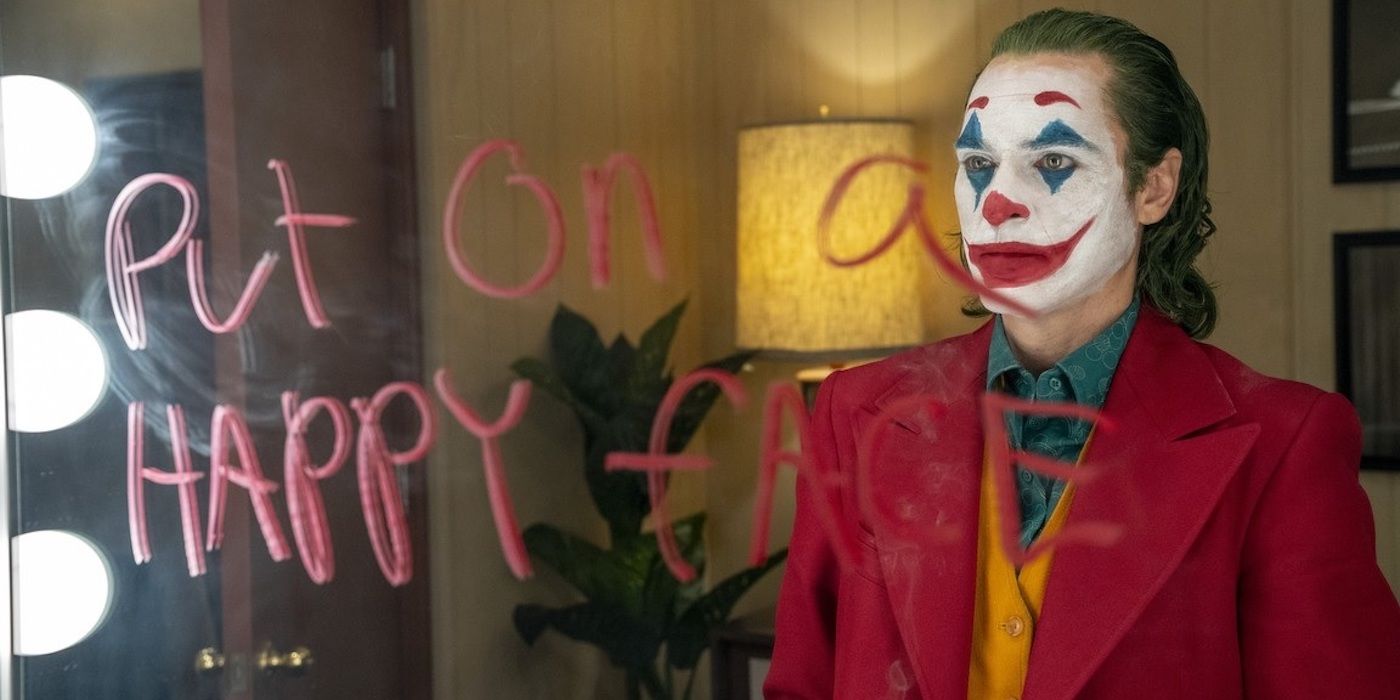WARNING: The following contains spoilers for director Todd Phillips' Joker, in theaters now.
When it comes to any interpretation of the Joker, fans will always scrutinize his iconic laugh. It's a classic part of the character, which we've adored in several movies and cartoons. Along with his appearance, it's hands-down the signature of the Clown Prince of Crime.
Whether he's wreaking havoc in Gotham or all over the world against the Justice League, Joker's laugh is supposed to inspire amusement along with horror and fear. In Todd Phillips' Joker, however, the laugh isn't something the character wields after deciding to become a villain. In fact, we actually get an origin for the laugh which doesn't really feel all that necessary.
The Joker's cackle has always been voluntary. It's an extension of his sadistic personality and a calling card, if you will. It either signals his arrival or exit, or is used in the shadows to inflict a sense of dread. This was seen in the big screen versions of the character played by Heath Ledger and Jack Nicholson, and in cartoons via the likes of Mark Hamill. The point is, that laugh is just as much a weapon as Joker's guns, bombs, crowbars, flowers and gas grenades.
In Joker, though, Phillips contextualizes the laugh as an uncontrollable neurological condition and a reflex that makes Arthur Fleck (Joaquin Phoenix) seem mad. He's had it since childhood, ergo his nickname of "Happy," and he carries around a card about his condition, as seen when a woman gets angry with him for trying to make her kid laugh on the bus.
Admittedly, it's actually pretty jarring seeing Arthur laugh at the most inopportune moments, such as in therapy after being mugged by teenage criminals or even when he witnesses three bankers harassing a woman on the train. In the case of the latter, the men turn their attention towards him, leading to a shootout in which Arthur guns them down, triggering his downward spiral.
But by providing a reason for his laugh, the movie takes away from the swirling chaos surrounding Arthur and tries to make him more sympathetic. But honestly this isn't necessary. We already sort of root for him as he's mentally ill in a society that's pretty much treating poor people like scum. Medical funding's been cut, mental health programs are being shut down and hints are dropped that Thomas Wayne fathered and abandoned Arthur. So to add in the neurological condition that leads to his laugh feels like overkill. It's as if Phillip wants the laugh to be another reason to feel sympathy for the character. But this undermines the purpose it serves in other stories: to scare us all to death.
If the laugh were a direct result of Arthur's mania, it would have helped build him up as a madman. And by gradually approaching a fit of laughter, we'd have gotten the moment of catharsis we waited for for the entire movie. It would have been the exclamation mark on his punch-line of a life -- a tragedy, not a comedy, as he puts it.
Yet, hearing it used throughout the film undercuts the effectiveness of the sinister laugh. It doesn't have impact by the time Arthur's most visceral moments erupt: when he suffocates his mom, kills a sly co-worker, or shoots Murray (Robert DeNiro) for making fun of him on air. In fact, even if it had been kept for the end when Arthur mounts a car and basks in the glory of the Joker riots, we could have understood it as an expression of excitement and satisfaction about the symbol of protest against the upper-class he's become.
As it stands, the laugh doesn't instigate the sense of rebellion Phillips barrelled audiences towards at the film's conclusion. Instead, it simply comes off as a plot device to make us understand and empathize with a lone wolf who we don't want to become a terrorist. But, that laugh is supposed to be the sound of terror and it should intimidate us, not make us worry about Joker's wellbeing. By giving us an explanation for it, all Phillips does is diminish what it really was meant to do: send chills down the citizens of Gotham's spines.
Directed by Todd Phillips, Joker stars Joaquin Phoenix, Robert De Niro, Zazie Beetz, Bill Camp, Frances Conroy, Brett Cullen, Glenn Fleshler, Douglas Hodge, Marc Maron, Josh Pais and Shea Whigham.



